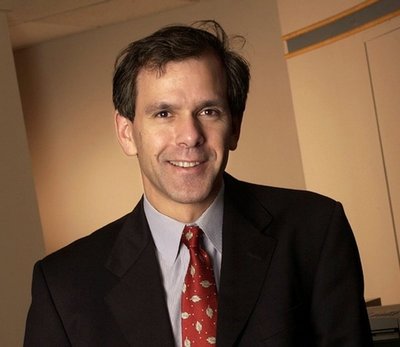The UW has created a new research center that will conduct independent, rigorous evaluations of health programs worldwide.
The Institute for Health Metrics and Evaluation will be supported by a new $105 million grant from the Bill & Melinda Gates Foundation, and $20 million from the UW. Its goal is to help guide international policymaking by providing high-quality data and analysis on health needs and outcomes, and assessing the performance of health programs.
“Health policy must be based on evidence, not speculation,” said Dr. Tachi Yamada, president of the Gates Foundation’s Global Health Program. “There has been a huge increase in resources for global health in recent years, and it’s essential to evaluate the impact of these investments. With high-quality data, we can ensure resources go where they are needed most, and dramatically improve health care delivery.”
“This generous grant from the Gates Foundation is a milestone for the University of Washington,” said UW President Mark Emmert. “This is the largest private gift in the UW’s history, and it will enable us, together with critical funding provided by Governor Gregoire and the state Legislature in the 2007 session, to bring unparalleled talent and resources to bear on the world’s greatest health challenges. We are grateful to the Gates Foundation and to the leadership in Olympia for making all of this possible.”
The new institute will be directed by Dr. Christopher Murray, a world-renowned health economist who was appointed in May to the faculty of the UW School of Medicine’s new Department of Global Health. Murray was previously director of the Harvard University Initiative for Global Health, and is a former senior official at the World Health Organization (WHO).
“Chris Murray is the ideal leader for the institute,” said Dr. Paul G. Ramsey, dean of the UW School of Medicine. “He is one of the foremost experts on health evaluation, and his pioneering research has had a wide-ranging impact.”
The institute will focus on three main areas:
Health monitoring: Collecting and analyzing data on health indicators and trends, such as the prevalence of major diseases and the availability of health services.
Program evaluation: Conducting independent, rigorous evaluations of the results and effectiveness of health programs.
Dissemination: Making health data and information freely available to decision-makers, researchers and the public.
When fully operational, the institute will consist of more than 100 faculty and staff. It will also establish an international network of collaborating research centers, and provide fellowships to train junior researchers.
“We hope to set the gold standard for scientifically rigorous evaluation in health,” said Murray. “Global health spending is on the rise, yet too often there are gaps in information about where these funds can have the greatest impact.”
Murray noted the institute will play a critical role in helping achieve global health targets such as the Millennium Development Goals, which call for major improvements in health by 2015.
“Health targets only work if we have a reliable way to track progress and measure success,” Murray said.
The institute will be guided by an international board of health experts chaired by Dr. Julio Frenk, a senior fellow at the Gates Foundation and Mexico’s former minister of health.
Frenk said the institute will work closely with international partners, including the Health Metrics Network, a WHO-hosted initiative to strengthen national health information systems. The Health Metrics Network was launched in 2005 with a $50 million grant from the Gates Foundation.
“Strengthening health monitoring and evaluation must be a global priority,” Frenk said. “We all have a responsibility to make sure that health programs are producing results and saving lives.”
The creation of the institute comes on the heels of UW’s establishment of a Department of Global Health that is jointly administered by the School of Medicine and School of Public Health and Community Medicine. UW has a long history of research and service projects worldwide.
“We have more than 250 grants and over 300 faculty involved working in more than 50 countries worldwide,” President Emmert said. “Seattle is a leader in international health, and the University is proud to be part of this important work.”
